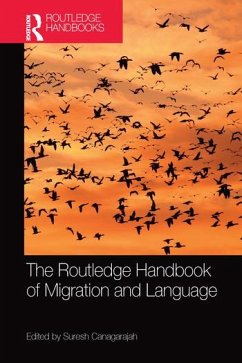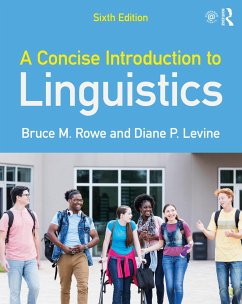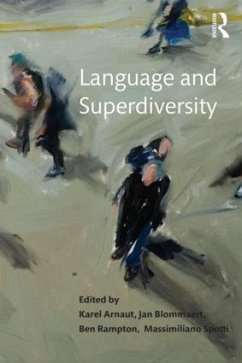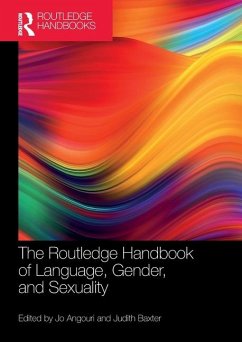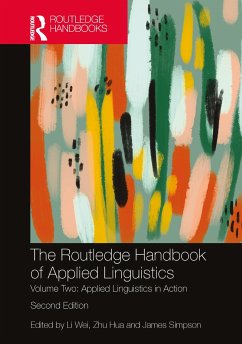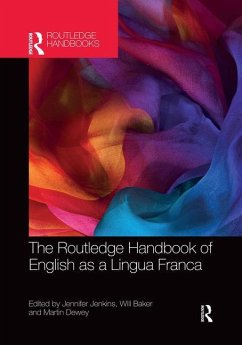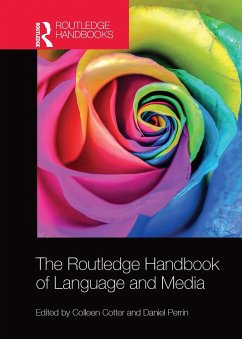
The Routledge Handbook of Linguistic Ethnography
Versandkostenfrei!
Versandfertig in 6-10 Tagen
48,99 €
inkl. MwSt.
Weitere Ausgaben:

PAYBACK Punkte
24 °P sammeln!
The Routledge Handbook of Linguistic Ethnography provides an accessible, authoritative and comprehensive overview of this growing body of research, combining ethnographic approaches with close attention to language use. This handbook illustrates the richness and potential of linguistic ethnography to provide detailed understandings of situated patterns of language use while connecting these patterns clearly to broader social structures.Including a general introduction to linguistic ethnography and 25 state-of-the-art chapters from expert international scholars, the handbook is divided into thr...
The Routledge Handbook of Linguistic Ethnography provides an accessible, authoritative and comprehensive overview of this growing body of research, combining ethnographic approaches with close attention to language use. This handbook illustrates the richness and potential of linguistic ethnography to provide detailed understandings of situated patterns of language use while connecting these patterns clearly to broader social structures.
Including a general introduction to linguistic ethnography and 25 state-of-the-art chapters from expert international scholars, the handbook is divided into three sections. Chapters cover historical, empirical, methodological and theoretical contributions to the field, and new approaches and developments.
This handbook is key reading for those studying linguistic ethnography, qualitative research methods, sociolinguistics and educational linguistics within English Language, Applied Linguistics, Education and Anthropology.
Including a general introduction to linguistic ethnography and 25 state-of-the-art chapters from expert international scholars, the handbook is divided into three sections. Chapters cover historical, empirical, methodological and theoretical contributions to the field, and new approaches and developments.
This handbook is key reading for those studying linguistic ethnography, qualitative research methods, sociolinguistics and educational linguistics within English Language, Applied Linguistics, Education and Anthropology.





